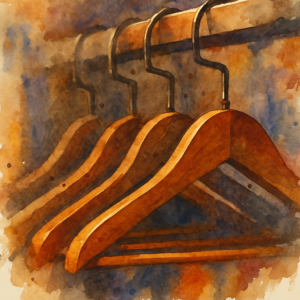Improve your ear for French with this clip from Transfert podcast. Select your level, and fill in the blanks with what you hear! These words stood out to me: “vraiment”, “bizarre”, and an old standby for any beginner: je m’appelle. Tune in and keep the habit of improving your French going!
Start quiz, type what you hear, then join the conversation.
Did you find this one challenging or easy? Did you hear something diffferent? What surprised you? What levels did you complete? Comment below and share what’s opening up for you with this quiz.
Learn French with a podcast snippet! This clip is is from Transfert s01ep01. We do not own the content. Listen to the entire episode here.
The above audio sample and transcription is from Transfert s01ep01. We do not own the content. Listen to the entire episode here.
very strange
What’s opening up for you with this clip?
The snippet in English
Find a translation of this snippet here, how much of this did you hear?
Je m’appelle Charlotte Pudlowski et aujourd’hui vous allez entendre l’histoire d’Hugo. Vous allez trouver qu’il est vraiment bizarre.
My name is Charlotte Pudlowski and today you’re going to hear Hugo’s story. You’re going to find him very strange.
The above translation from Deepl
What does “Je m’appelle” mean?
“Je m’appelle” is a fundamental French phrase that translates to “My name is” or “I am called” in English. It is used for introducing oneself by stating one’s name.
Usage and Context:
- Self-Introduction: Primarily used when someone is introducing themselves to others.
- Example: “Je m’appelle Marie.” (My name is Marie.)
- First Encounters: Common in situations where you meet someone for the first time, in both formal and informal settings.
Grammatical Structure:
- “Je”: The first-person singular pronoun in French, meaning “I.”
- “M’appelle”: A reflexive form of the verb “appeler,” meaning “to call.” In “Je m’appelle,” it translates to “I call myself.”
Cultural Notes:
- In French culture, as in many others, providing one’s name is a fundamental part of introductions and is key to polite and social interaction. “Je m’appelle” is often one of the first phrases learned by students of the language.
In Summary:
“Je m’appelle” means “My name is” or “I am called” in French and is used for self-introduction. It’s a basic and essential phrase for stating one’s name, commonly used in both formal and informal situations when meeting new people. This phrase is integral to French language and culture, especially in social interactions.
What does “vraiment” mean?
“Vraiment” is a commonly used French adverb that translates to “really” or “truly” in English. It is used to emphasize the truthfulness, sincerity, or intensity of an action, statement, or feeling.
Usage and Context:
- Emphasizing Truth or Sincerity: Used to affirm the authenticity or sincerity of a statement.
- Example: “Je suis vraiment désolé.” (I am really sorry.)
- Intensifying Adjectives or Verbs: Can intensify the meaning of adjectives or verbs.
- Example: “C’est vraiment magnifique.” (It’s really beautiful.)
- Expressing Surprise or Doubt: Sometimes used to express surprise, doubt, or disbelief.
- Example: “Vraiment? Tu es sûr?” (Really? Are you sure?)
Grammatical Structure:
- Adverbial Use: “Vraiment” modifies verbs, adjectives, or other adverbs, enhancing their meaning.
Cultural Notes:
- In French, as in many languages, adverbs like “vraiment” play a crucial role in conversation for adding emphasis or expressing emotional intensity.
In Summary:
“Vraiment” means “really” or “truly” in French, functioning as an adverb to emphasize truth, sincerity, or intensity. It is versatile and widely used to strengthen the meaning of statements, to intensify adjectives or verbs, or to express reactions like surprise or doubt. “Vraiment” is a fundamental word in French, useful in a variety of conversational contexts.
What does “bizarre” mean?
“Bizarre” is a French adjective that directly translates to “bizarre” or “strange” in English. It is used to describe something unusual, odd, or peculiar.
Usage and Context:
- Describing Oddity or Unusualness: Applied to situations, behaviors, objects, or occurrences that are out of the ordinary.
- Example: “C’est une situation bizarre.” (It’s a strange situation.)
- Conveying Surprise or Confusion: Often used when something does not conform to the expected norms or when it evokes surprise or confusion.
- Example: “Il a un comportement bizarre.” (He has a bizarre behavior.)
Grammatical Structure:
- Adjective: “Bizarre” can modify nouns and is subject to French rules of agreement in gender and number.
Cultural Notes:
- Describing things as “bizarre” in French is common and reflects the language’s rich vocabulary for expressing nuances in oddity and peculiarity.
In Summary:
“Bizarre” in French means “bizarre” or “strange” and is used to describe things that are unusual, odd, or peculiar. It’s a straightforward adjective, often used to express surprise, confusion, or the unconventional nature of something. Like in English, it’s a commonly used term in various contexts to highlight irregularity or deviation from the norm.
This clip is from the “Transfert” podcast
Produced by slate.fr, “Transfert” is a unique French podcast that offers an immersive listening experience. Each episode features real-life stories narrated by the people who lived them.
These personal narratives cover a wide range of human experiences and emotions, providing listeners with profound insights into the lives and minds of others. The storytelling is intimate and engaging, making it an excellent resource for French language learners to improve their listening skills while connecting with compelling, authentic content.
Improving your French Listening Comprehension with Podcasts
On this site, fast spoken French is finally accessible to all levels. The tool break podcasts into short clips each set to transcription fill-in-the-blank practice. My favorite practice in class is always dictées. While they can seem overwhelming at first, the confidence boost and skills payoff for doing the work pays off. They’re perfect for anyone at any level, from advanced students to those just starting.
We use podcasts and our practice exercises to make it possible for anyone, anywhere to immerse in French with fun and ease. Join us and enjoy French, one short clip at a time. Let’s learn together!
Make the most of the site:
- Daily Podcast Listening: Start your day with a French podcast from our collection. Choose episodes that align with your interests to keep it engaging.
- Active Listening Practice: As you listen, try to pick out key phrases and vocabulary. Use our daily quizzes to test your understanding and reinforce learning.
- Repeat and Shadow: Listen to the same podcast segment multiple times. Try to mimic the pronunciation and intonation to improve your spoken French.
- Note-taking: Jot down new words or phrases you encounter. Review these notes regularly to enhance vocabulary retention.
- Reflect and Respond: After each episode, summarize the main points in French, either in writing or aloud. This helps in consolidating your learning and improving your expressive skills.
- Read More:
- True Beginner or A1 Learners: discover tips learning with podcasts at an introductory level.
- Discover all the podcast clips on FrenchIRL organized by level.
- Top Tips: Here’s how I make the most of my own site.
I created the French In Real Life project because I wanted to understand more than just my teacher and youtubers who cater to learners. I wanted to understand the French I hear in France. I hope you can benefit as much as I have. Become a supporting member for access to all clips.
Improve your ear for French with this clip from Transfert podcast. Select your level, and fill in the blanks with what you hear! These words stood out to me: “vraiment”, “bizarre”, and an old standby for any beginner: je m’appelle. Tune in and keep the habit of improving your French going!
Start quiz, type what you hear, then join the conversation.
Did you find this one challenging or easy? Did you hear something diffferent? What surprised you? What levels did you complete? Comment below and share what’s opening up for you with this quiz.
 Kids Songs
Kids Songs 







